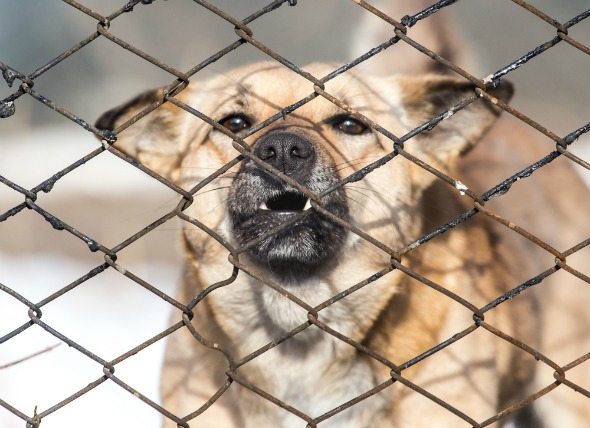Beagles rarely develop hypothyroidism. But the fact that they are dogs they can still be affected with this disease of the thyroid. A Beagle shedding hair may indicate infection caused by fleas and ticks but wait... it might be because of hypothyroidism.
One of the largest endocrine glands in the body is the thyroid gland. Thyroid gland, consisting of two lobes is located at the base of the neck. This gland produces thyroxine, a hormone that regulates the body's metabolic rate. This hormone controls how quickly the body burns calories and makes proteins. Insufficient production of thyroxine leads to hypothyroidism.
Hypothyroidism affects dogs between 4 to 10 years old and is common in middle to large size breeds. It is also common in neutered dogs than in intact animals.
A dog affected by hypothyroidism exhibits various symptoms. Excessive shedding and difficulty in growing hair are some symptoms. Black pigment in the skin of their groin is also present. Other symptoms are lethargy, weight gain, low tolerance to cold, slow heart rate, high blood cholesterol and anemia. These symptoms when combined will be the basis of your veterinarian to detect hypothyroidism in Beagles.
Hypothyroidism is diagnosed through various tests. These tests are T4 test, T3 test and TSH Stimulation test. The most common is the T4 test wherein blood sample is drawn and then tested. This is to determine the level of T4 thyroid hormone in the bloodstream. T3 test is similar to T4 but is not quite accurate in early case of hypothyroidism. To ensure accuracy, T3 test is oftentimes used together with T4 or TSH Stimulation tests. TSH Stimulation test is used when results of T3 and T4 tests are in doubt.
Hypothyroidism is not a life-threatening disease. This disease is best treated with the use of thyroid hormone or thyroxine. It is available in various brands and comes in tablet form. Dosage of this drug varies depending on the severity of the condition. It is usually based on the dog's weight, blood samples and to the dog's response to the drug. Once thyroxine medication is started in dogs, it should be given for the rest of dog's life.

 Possessive and Territorial Aggression in Dogs
Some dogs are dangerous to other dogs, and even t
Possessive and Territorial Aggression in Dogs
Some dogs are dangerous to other dogs, and even t
 Abscesses in Dogs
Surface wounds are fairly common in pets, but the
Abscesses in Dogs
Surface wounds are fairly common in pets, but the
 Colonic or Rectal Inflammation in Dogs
Colitis and Proctitis in Dogs
Histiocytic ulcerat
Colonic or Rectal Inflammation in Dogs
Colitis and Proctitis in Dogs
Histiocytic ulcerat
 Bone Inflammation (Panosteitis) in Dogs
Panosteitis in Dogs
Panosteitis refers to a short
Bone Inflammation (Panosteitis) in Dogs
Panosteitis in Dogs
Panosteitis refers to a short
 Irregular Heartbeat in Dogs
Sinus Arrhythmia in Dogs
Arrhythmia is caused by
Irregular Heartbeat in Dogs
Sinus Arrhythmia in Dogs
Arrhythmia is caused by